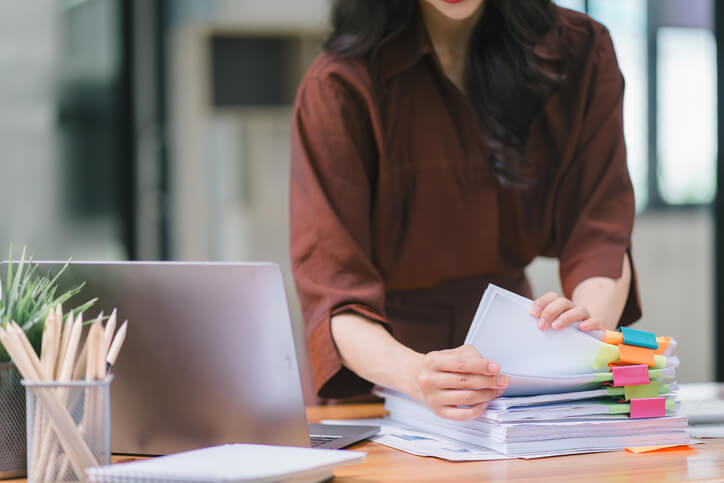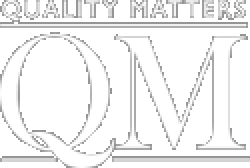GET MORE INFO NOW!!!
Start your journey towards a new career today by requesting program details.
 Financial Assistance
Financial Assistance
 Career Options
Career Options Start Dates
Start Dates Job Opportunities
Job Opportunities

Posted by AOLCC | 23rd September 2025

When you first hear the terms bookkeeping and accounting, they might sound like two ways of describing the same job. In reality, the difference between bookkeeping and accounting is significant, and understanding it can help you figure out which career path is the best fit for your goals. Both roles are essential to the success of any business, but they focus on different stages of managing financial information.
Bookkeepers are responsible for keeping track of every transaction, ensuring that records are accurate and up-to-date. Accountants, on the other hand, analyze and interpret that information to create reports, advise businesses, and support decision-making. Knowing how to differentiate accounting from bookkeeping can give you clarity about the skills you’ll need, the responsibilities you’ll take on, and the type of training program that can launch you into the field.
The simplest way to understand the difference between bookkeeping and accounting is to think of bookkeeping as the foundation and accounting as the structure built on top of it.
Bookkeeping focuses on recording daily financial transactions: sales, purchases, payments, and receipts. It’s about systematically maintaining accurate records.
Accounting goes further by analyzing, interpreting, and summarizing those records to provide insights into a business’s financial health. Accountants prepare reports, help with budgeting, and ensure compliance with tax regulations.
Put another way: bookkeepers track the numbers, while accountants explain what those numbers mean.
 The AOLCC BC course explains the difference between bookkeeping and accounting.
The AOLCC BC course explains the difference between bookkeeping and accounting.
Both roles are essential, but they serve different functions within a business.
Bookkeeper: Responsible for entering and organizing financial data. Their tasks include processing invoices, reconciling bank statements, and maintaining payroll records. Accuracy and attention to detail are critical in this role.
Accountant: Uses the data provided by bookkeepers to create financial statements, develop strategies, and provide advice to business owners. Accountants also ensure compliance with tax laws and accounting standards.
When you differentiate accounting from bookkeeping, it becomes clear that bookkeepers focus on the "what" of financial records, while accountants focus on the "why" and "how" behind the numbers.
QuickBooks is widely known as an accounting software, but in practice, it’s primarily designed for bookkeeping tasks. Users rely on it to record transactions, generate invoices, process payroll, and reconcile accounts.
That said, QuickBooks also includes basic accounting features, such as creating financial statements and tax reports. While it helps with both areas, it does not replace the professional judgment of an accountant who can interpret data, provide strategic insights, and ensure compliance.
In short, QuickBooks supports both bookkeeping and accounting, but is most often used as a bookkeeping tool.
While distinct, bookkeeping and accounting work hand in hand. Without accurate bookkeeping, accountants don’t have reliable data to analyze. Without accounting, businesses can’t make informed decisions based on those records.
Small businesses may sometimes rely on one person, such as an accounting clerk, to handle both roles, but in larger organizations, the two functions are separated to ensure accuracy and efficiency. This partnership underscores why learning both skill sets can make you highly employable.
 While distinct, bookkeeping and accounting work hand in hand.
While distinct, bookkeeping and accounting work hand in hand.
The difference between bookkeeping and accounting comes down to scope: bookkeepers keep track of financial transactions, while accountants analyze and interpret them. Both are vital to any organization’s financial health, and together they create the full picture of a company’s performance.
Whether your goal is to become a bookkeeper or to advance into higher-level accounting positions later, this training offers a strong foundation.
Are you looking for a comprehensive accounting and bookkeeping certificate program?
Contact AOLCC for more information.
Question: What is the main difference between bookkeeping and accounting?
Answer: The simplest way to understand the difference between bookkeeping and accounting is to think of bookkeeping as the foundation and accounting as the structure built on top of it.
Question: What is the difference between a bookkeeper and an accountant?
Answer: Both roles are essential, but they serve different functions within a business.
Bookkeeper: Responsible for entering and organizing financial data.
Accountant: Uses the data provided by bookkeepers to create financial statements, develop strategies, and provide advice to business owners
Question: Is QuickBooks a bookkeeping or accounting software?
Answer: QuickBooks is widely known as an accounting software, but in practice, it’s primarily designed for bookkeeping tasks. Users rely on it to record transactions, generate invoices, process payroll, and reconcile accounts.
Start your journey towards a new career today by requesting program details.
This fun, online quiz takes 3 minutes to complete and you’ll get a personalized report. Identify your strengths and social style plus the training and positions you’re best suited for.Get Your Career Training Readiness Score Now

B.C. Private Training
Institutions Branch

B.C.
Education
Quality Assurance
With campuses in four strategic locations, AOLCC is your go-to career college in BC
Each AOLCC campus serves as a local hub for career skills training and community connection. Whether you are searching for colleges in Kamloops, BC, colleges in Nanaimo, BC, or a career college in Kelowna, our campuses are easily accessible and connected to local employers.
699 Victoria Street
A welcoming, centrally located campus in the heart of the city
347 Leon Avenue
Serving the Okanagan with flexible programs for career starters and changers
1551 Estevan Road
Conveniently located for students on Vancouver Island seeking certificate programs
754 Goldstream Avenue
Offering diploma and certificate programs to students in Greater Victoria and beyond
Our campuses are accessible via public transit, and many offer nearby parking options. If you’re looking for career training in other BC locations, we can connect you with our extended AOLCC network.

